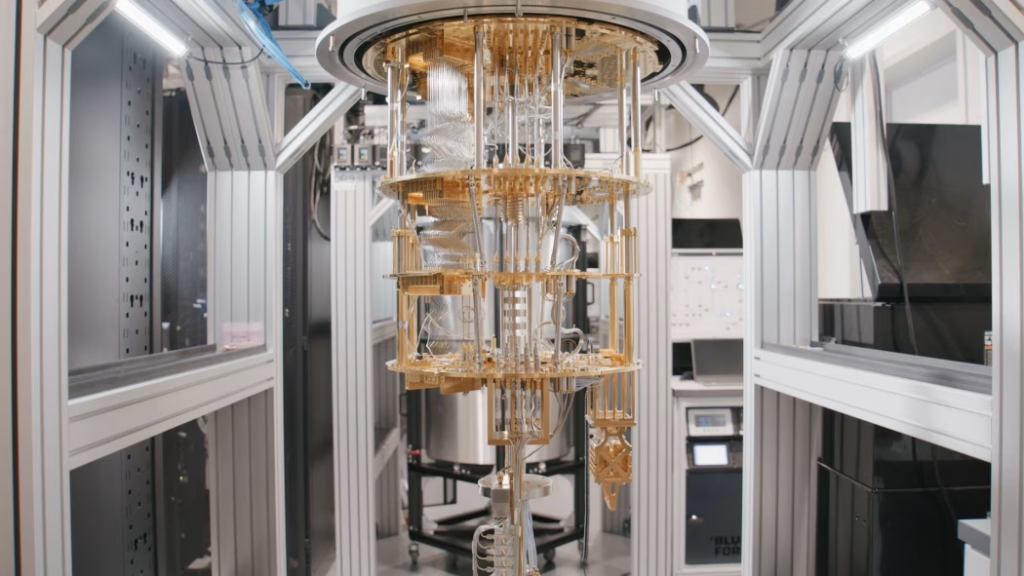
In the ever-evolving Quantum Computing race, Amazon Web Services (AWS) has unveiled a new Quantum Chip dubbed ‘Ocelot.’ Named after a medium-sized spotted wild cat (Leopardus pardalis), its unveiling comes after the recent announcement of Microsoft’s Majorana 1 Chip, and Google’s Willow Chip.
In an industry where every tech company in the quantum computing arms race comes with a new achievement — the powering of Majorana 1 with a novel topological core architecture; and Willow, a state-of-the-art quantum chip, performing a benchmark computation in under five minutes as opposed to today’s fastest supercomputers performing it in 10 septillion years — Amazon’s Ocelot chip comes with a new feat.
Although Google’s Willow chip achieved an exponential reduction in error rate by using more qubits, Amazon’s Ocelot uses a scalable architecture, resulting in a 90% reduction in error correction. In turn, it allows for the acceleration of the development of real-world quantum computing applications.
Ocelot was built with the major intention of course correcting the long-lasting problem of quantum error. In the report published by Amazon, Ocelot is said to be “a new quantum computing chip that can reduce the costs of implementing quantum error correction by up to 90%, compared to current approaches.”
According to the report and a paper published in Nature by AWS researchers, a new design was used in building the architecture of Ocelot, where error correction was built from the ground up using the ‘cat qubit.’
“Cat qubits – named after the famous Schrödinger’s cat thought experiment – intrinsically suppress certain forms of errors, reducing the resources required for quantum error correction,” says the report.
“Through this new approach with Ocelot, AWS researchers have, for the first time, combined cat qubit technology and additional quantum error correction components onto a microchip that can be manufactured in a scalable fashion using processes borrowed from the microelectronics industry.”
Oskar Painter, the AWS Director of Quantum Hardware, further emphasizes in the report that in a bid to develop Ocelot with a ‘built-in’ error correction, he and his team of researchers took a different approach by not using an existing architecture. Instead, Painter says, “We selected our qubit and architecture with quantum error correction as the top requirement. We believe that if we’re going to make practical quantum computers, quantum error correction needs to come first.”
The Error Correction design – in the name of ‘Cat qubits’ – is considered a game-changer. As a result of quantum computing facing major challenges, one of which is qubits (quantum bits) being incredibly sensitive to environmental factors like heat, vibrations, and electromagnetic interference, errors occur, leading to the disruption of computations. This is a big deal as efficient error correction is essential for building practical quantum computers.
The scalable design is also a game-changer in the quantum computing momentum. Ocelot, built with scalable architecture, is designed to grow. Since it is still a prototype, the built-in error-correcting approach could work in larger systems, and since scaling up has been one of the biggest challenges faced in quantum computing, the scalability move is a smart one.
However, due to the quantum computing chip being in its early stages, where Ocelot has only nine qubits, it is very much considered a first step as opposed to a breakthrough in the quantum computing race according to many quantum analysts. In a situation where a quantum computer has to tackle real-world problems, like cracking complex solutions or cryptography that classical computers can’t handle, Ocelot will need thousands or millions of qubits.
Google’s Willow chip already has 105 qubits, and IBM has a 1,121-qubit Condor processor. As such, Amazon still has a long way to go with Ocelot.
Heather West, IDC (International Data Corp) quantum computing analyst says, “I would categorize this as much more of an advancement and less of a breakthrough,” as she is particularly bothered by the uncertainty of a solid solution to reducing errors in quantum systems.
Amazon is committed to investing continuously in quantum research. They also admit that it will take years to refine this approach for commercial use. “We’re just getting started and we believe we have several more stages of scaling to go through,” says Painter.

